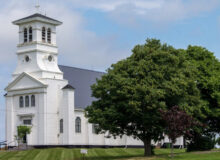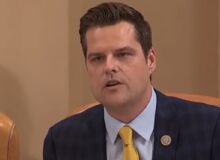America’s Exceptionalism
Of all the Founders George Washington is the most well known. He has been held up throughout history as the Father of our great nation. His leadership through the Revolutionary War and through the ensuing peacetime while helping to form the Constitution and setting the example for those that followed in his footsteps are second to none. His Christian faith is unquestionable and verifiable from not just his own writings but what his contemporaries wrote about him. Yet today he is not put into such a good light. The revisionist historians have had to expound on his faults, mostly perceived faults, to discredit what he accomplished and what he stood for.
The move is underway and has been for decades to bring America into the worlds system of government that is devoid of God, patriotism and freedoms. To break America down they have to make the Founders appear to be of no good. Yet the success of America is second to none. We are the most powerful and prosperous nation the world has ever seen. If America falls, we will never see this kind of greatness again for centuries if ever.
In looking At George Washington we will see a man of honor and a man of integrity. We will see a man who is dedicated to what he believes in. We will see a man dedicated to his God and all He stands for. We will see why he is called the Father of America.
George Washington was a surveyor, planter, soldier, statesman, Commander-in-Chief- of the Continental Army during the Revolutionary War, Chairman of the Constitutional Convention; he was an active Episcopalian and the 1st President of the Unites States. He was born in 1732 to Augustine and Mary Washington. He was a descendent of King John of England and nine of the twenty-five Baron Sureties of the Magna Carta. At the age of eleven his father died and he lived with his half brother until he was sixteen. He was homeschooled and tutored and at seventeen received his surveyors license from William and Mary College.
He grew up to respect things of honor. His actions were based on honorable traits. His speech was always intended to look at the best of a person’s character. As stated in an earlier chapter his education was based on the New England Primer which concentrated on the principles of God. At the age of 15 he copied the 110 Rules of Civility and Descent Behavior in Company and Conversation, in his own handwriting. Some of these rules are:
- When you speak of God, or His attributes, let it be seriously and with reverence. Honor and obey your natural parents although they be poor,
- Let your recreation be manful not sinful.
- Labour to keep alive in your breast that little spark of celestial fire called conscience. 1
One instance that has not been taught in schools since 1934 is a battle that Washington was in during the French and Indian War. This battle took place on July 9, 1755 and Washington was with British General Edward Braddock when the French attacked. The British were unaccustomed to fighting in wooded areas and were being annihilated. Washington was on horseback riding back and forth delivering orders. All other officers on horseback were killed including General Braddock at which point the British fled. In a letter dated July 18, 1755 to his brother, John A. Washington, Washington described the battle:
But by all-powerful dispensations of Providence, I have been protected beyond all human probability or expectation; for I had four bullet holes through my coat and two horses shot under me, yet escaped unhurt, although death was leveling my companions on every side of me.2
The interesting part of this story comes 15 years later in 1770 when Washington and Dr, Craik, a close friend, were travelling through those same woods near the Ohio River. They were met by an old Indian Chief who gave Washington an account of that battle from the Indians side. This was done through an interpreter:
I am a chief and ruler over my tribes. My influence extends to the waters of the great lakes and to the far blue mountains.
I have traveled a long and weary path that I might see the young warrior of the great battle. It was on the day when the white man’s blood mixed with the streams of our forests that I first beheld this chief [Washington].
I called to my young men and said, mark yon tall and daring warrior? He is not of the red-coat tribe – he hath an Indian’s wisdom, and his warriors fight as we do – himself alone is exposed.
Quick, let your aim be certain, and he dies. Our rifles were leveled, rifles which, but for you, knew not how to miss – t’was all in vain, a power mightier far than we, shielded you.
Seeing you were under the special guardianship of the Great spirit, we immediately ceased to fire at you. I am old and shall soon be gathered to the great council fire of my fathers in the land of shades, but ere I go, there is something that bids me to speak in the voice of prophecy:
Listen! The Great Spirit protects that man [pointing at Washington], and guides his destinies- he will become the chief of nations, and a people yet unborn will hail him as the founder of a mighty empire. I am come to pay homage to the man who is a particular favorite of Heaven and who can never die in battle.3
I believe that this event should be taught in our schools as it shows unequivocally that God’s hand was not just on this nation but on Washington himself. Washington believed in divine protection which was assured in scripture: Psalms 91:7 A thousand shall fall at thy side, and ten thousand at thy right hand; but it shall not come nigh thee.4
This was event was again verified by another Indian warrior who stated:
Washington was never born to be killed by a bullet! I had seventeen fair fires at him with my rifle, and after all could not bring him to the ground!5
Washington lived daily by the principles of Christianity and he conducted not just his daily life, but the affairs of the military to reflect those very principles. On July 4, 1775 as General of the Continental Army Washington issued this order:
The General most earnestly requires and expects a due observance of those articles of war established for the government of the Army which forbid profane cursing, swearing and drunkenness. And in like manner he requires and expects of all officers and soldiers not engaged in actual duty, a punctual attendance of Divine services, to implore the blessing of heaven upon the means used for our safety and defense.6
He required his men to act according to the principles of Christianity. He saw to it that chaplains were available to all of his soldiers.7 And on the same day he issued this general order to his troops:
The General hopes and trusts that every officer and man, will endeavor so to live, as becomes a Christian Soldier defending the dearest Rights and Liberties of his country.8
Again the revisionists have tried to tell us that Washington was an atheist, however an atheist would not require chaplains for his soldiers nor would he require them to live according to Christian principles.
Washington believed in God’s hand of protection on him and his army. Many times Washington and his army were saved by unusual weather conditions that heavily favored the Continental Army. One story, which is discussed in Chapter 13, gave Washington an edge over General Howe which if it had not happened could have been the end of the War for America’s independence.
When the winter of 1778 was over Washington commended his troops for their courage and patriotism through the previous winter at Valley Forge, Washington stated:
While we are zealously performing the duties of good citizens and soldiers, we certainly ought not to be inattentive to the higher duties of religion. To the distinguished character of Patriot, it should be our highest glory to add the distinguished character of Christian.9
Later that year Washington commented on how America had depended on what he knew was their ‘firm reliance on Divine Providence’ to General Thomas Nelson:
The hand of Providence has been so conspicuous in all this that he must be worse than an infidel that lacks faith, and more than wicked, that has not gratitude enough to acknowledge his obligations.10
Washington understood that America had to govern itself according to the principles found in scripture. This was a common thread among the Founders, as we have seen by their calling for teaching the Bible in all schools and by requiring military and government alike to adhere to those Biblical principles. In Washington’s Inaugural Address he stated:
The propitious [favorable] smiles of Heaven can never be expected on a nation that disregards the eternal rules of order and right which Heaven itself has ordained.11
One comment by a revisionist states this about Washington:
George Washington . . . seems to have had the characteristic unconcern of the 18th century deist for the forms and creeds of institutional religions . . . he often referred to Providence as an impersonal force, remote and abstract.12
As we have seen in the actual writings of Washington, Mr. Morris’s account is completely unfactual. The problem with these lies perpetrated by the revisionists is most readers fail to investigate these claims. Most history books written after 1920 have begun to show the Founders in a bad light. W.E Woodward has written very disparaging information concerning Washington that cannot be verified and contradicts even the writings of Washington.
As a final statement concerning Washington, his adopted daughter commented on those that doubted his religious beliefs:
I should have thought it the greatest heresy to doubt George Washington’s firm belief in Christianity. His life, his writings prove that he was a Christian.13 This sentiment was echoed by Gunning Bedford, 14 John Marshall,15 Abiel Holmes,16 Jonathan Sewell,17 and Jeremiah Smith,18 all his contemporaries.
Our job should be to study this history ourselves and not from modern so-called historians but read the writings of the Founders themselves and their contemporaries. This is the only way that we will fully understand the positions they held and the faith they lived by.
End Notes
- George Washington. 1745, 110 Rules of Civility and Descent Behavior in Company and Conversation, (copied in his own handwriting at the age of 15) (Bedford, MA: Apple Books, 1988, distributed by the Globe Pequot Press, Chester CT), p. 30.
- George Washington. July 18, 1755, in a letter to his brother, John A. Washington. Jared Sparks, editor, The Writings of George Washington 12 vols. (Boston: American Stationer’s Company, 1837, NY: F. Andrew’s, 1834-1847), Vol. II, p. 89.
- George Washington. 1770, George Washington Park Custis, Recollections and Private Memoirs of Washington, Benson J. Lossing, editor, (1860), p. 303; narrative told by Dr. Craik to Mr. George Washington Park Custis, first published in
- The Holy Bible: King James Version. electronic ed. of the 1769 edition of the 1611 Authorized Version. Bellingham WA : Logos Research Systems, Inc., 1995, S. Ps 91:6-7
- George Washington. 1770, David Barton, The Bulletproof Washington (Aledo, TX: Wallbuilder, Inc., Winter, 1993), p. 49.
- George Washington. July 4, 1775, in his General Orders from the Headquarters at Cambridge. Jared Sparks, ed. The Writings of George Washington. 12 Vols. (Boston: American Stationer’s Company, 1837, NY: F. Andrew’s, 1834-1847). Vol. III, p. 491.
- George Washington. July 9, 1776, previously $20.00 a month, approved July 1775. American Army Chaplaincy – A Brief History (prepared in the Office if the Chief of Chaplains: 1946), p. 6.
- George Washington. July 9, 1776, order issued to the army in response to the reading of the Declaration of Independence by the Continental Congress. Jared Sparks, editor, The Writings of George Washington 12 Vols. (Boston: American Stationer’s Company, 1837; NY; F. Andrew’s, 1834-1847), Vol. III, p.456.
- Washington, Writings, (1932), Vol. XI, pp. 342-343, General Orders of May 2, 1778.
- George Washington, The Writings of George Washington, Jared Sparks, editor (Boston: American Stationer’s Company, 1838), Vol. VI, p. 36, to Brigadier General Thomas Nelson on August 20, 1778.
- The Daily Advertiser (New York), May 1, 1789, p. 2.
- Los Angeles Times, August 3, 1995,: America’s UnChristian Beginnings’ Steven Morris, p. B-9
- George Washington. The Writings of George Washington, Jared Sparks, editor (Boston: Ferdinand Andrews, 1838), Vol. XII, p. 406, from Washington’s adopted daughter to Jared Sparks on February 26, 1833.
- Gunning Bedford, Funeral Oration upon the Death of General George Washington, (Willmington: Franklin Press, 1800), p.15.
- John Frederick Schroeder, Maxims of Washington: Politcal, Social, Moral and Religious, (New York: D. Appleton and Company, 1855), p. 340.
- Abiel Holmes, The Counsel of Washington, Recommended in a Discourse Delivered at Cambridge, February 22, 1800 (Boston: Samuel Hall, 1800), p. 20.
- Eulogies and Orations on the Life and Death of George Washington (Boston: Manning and Loring, 1800), p. 37, from an eulogy by Jonathan Mitchell Sewell on December 31, 1799.
- Eulogies and Orations on the Life and Death of George Washington (Boston: Manning and Loring, 1800), p. 190, from an oration delivered by Jeremiah Smith on February 22, 1800.





















Join the conversation!
We have no tolerance for comments containing violence, racism, vulgarity, profanity, all caps, or discourteous behavior. Thank you for partnering with us to maintain a courteous and useful public environment where we can engage in reasonable discourse.